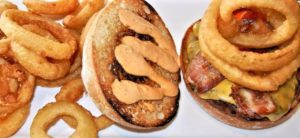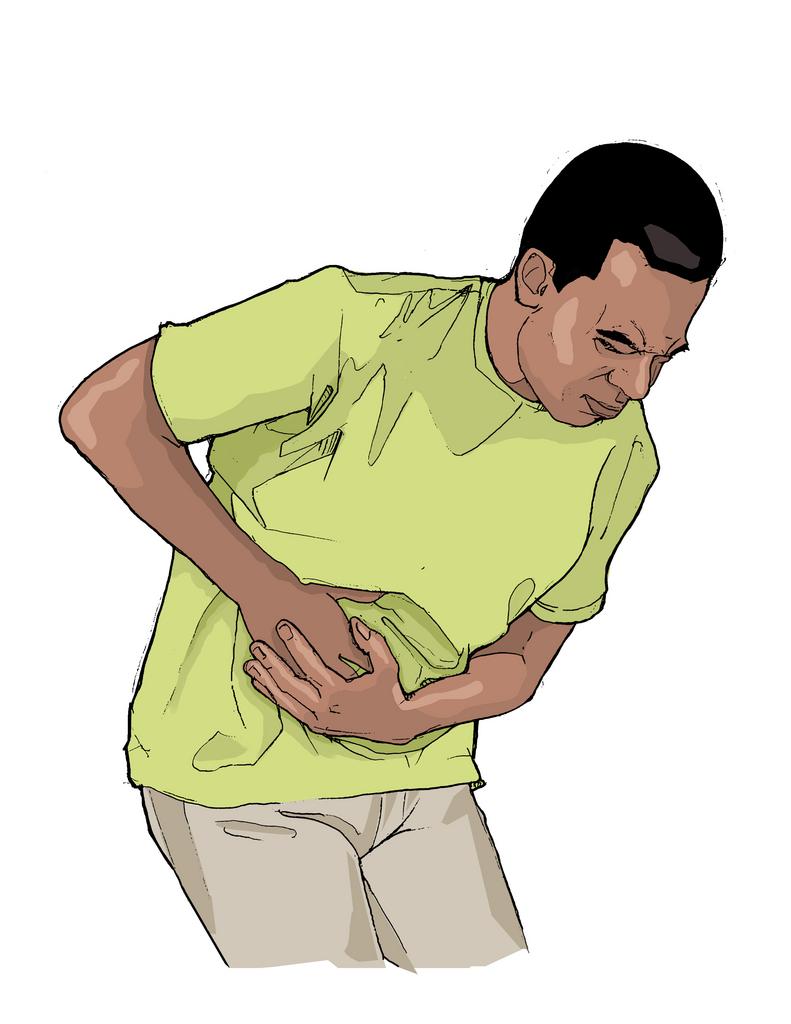If you experience IBS (irritable bowel syndrome) you know that flare-ups are no fun. Learning more about the foods that you should avoid can help you manage your IBS and cut back on flare ups. IBS is a common problem that affects the digestive system, which includes the stomach and intestines. It is a chronic disorder, which means symptoms can go away and return throughout your lifetime. Some of the most common symptoms patients experience with irritable bowel syndrome include:
- Excess gas
- Bloating
- Diarrhea or constipation
- Abdominal cramping and pain
Flare-ups and Food
People with irritable bowel syndrome (IBS) often experience “flare-ups”, meaning their symptoms reoccur after having been absent for a time. Often people will need long-term treatments and management plans for IBS. Foods that contribute to IBS flare-ups vary from person to person. While some foods can cause severe symptoms in one person, another person can eat them without feeling any discomfort. IBS occurs from poorly digested foods that ferment microbes in our gut leading to flare-ups.
A popular way for patients to figure out which foods trigger their IBS symptoms is an elimination diet. This means you eliminate certain foods for a period of time. Then, you add them back one at a time. This makes it easier to notice if you have a reaction to a particular food.
Foods that Commonly Trigger IBS

- High-fat and fried foods
- Lactose containing dairy products (like milk and cheese)
- Processed foods (like chips and cookies)
- High-protein diets
- Refined grains (certain breads and cereals)
- Coffee, soda, and alcohol
Dealing with IBS can be frustrating, especially if you feel like you are giving up all your favorite foods. It is important to remember, that there are many of delicious foods that you can still enjoy that will not trigger your IBS.
Healthy Food Choices for IBS
Add more fiber to your diet to strengthen your gut and reduce IBS. According to the FDA, the recommended daily goal for fiber is 25 grams per day. Start by adding 2 or 3 more grams per day until you reach the recommended daily goal. Increasing your fiber too fast can actually worsen your IBS. So, it’s important to add the fiber slowly so that your body has time to adjust and get used to it.

Some of the best foods to eat to increase your fiber intake and avoid IBS flare-ups include:
- Whole-grain bread, pasta, and cereals
- Small servings of beans
- Fruits
- Vegetables
While eating plenty of veggies is important, limit large amounts of vegetables that cause gas, such as as cauliflower or asparagus. Explore new ways to cook your favorite foods while using less oils and fats. You can create flavorful dishes by broiling, steaming, grilling, and baking, while reducing the risk of IBS symptom flare-ups.
Lifestyle Choices for Managing IBS
Improving your overall health by adopting a healthier lifestyle can have a positive impact on your IBS. Poor eating habits, such as eating while you drive or eating too fast, can trigger IBS symptoms. Schedule time in your day to eat and enjoy your meals without haste or distractions to help your body digest better.
Anxiety and stress can trigger IBS symptoms, especially constipation. If you experience a lot of daily stress, you may not feel much relief even if you cut trigger foods out of your diet. Make regular sleep a goal, try relaxation techniques, or speak with a therapist about reducing stress. If you experience constipation, try prune juice or dried plums to relieve the symptoms. In addition, stay hydrated by drinking lots of water throughout the day.
Increase your daily physical activity level. Lack of exercise is another known cause of IBS. Activities like walking increase peristalsis, which is the muscular movement of food through your GI tract. Do your best to move more, and work your way up to exercising for 60 minutes a day. This can help reduce stress and relieve constipation.
Making healthier lifestyle and diet choices can help you to manage your IBS and improve your quality of life. If you’re experiencing the symptoms of IBS, your family doctor can help with your plan to manage the condition. If you’ve been diagnosed with IBS and would like to speak with a doctor or nutritionist about your symptoms call our family practice at 916-392-4000 for an appointment or contact River Bend Medical Associates.
At our Sacramento area medical practice, we are committed to delivering quality health care and promoting the well-being of our patients. As part of your medical team, we are here to provide you with the best care in all aspects of your health care needs.
For more tips on helping you and your family eat right, schedule an appointment with our nutritionist, we offer one-on-one appointments in person and telehealth! Or call River Bend Medical Associates at 916-392-4000.


